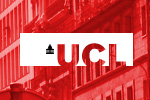

 |
 |
IntroductionBrussels is the bilingual capital of Europe, Belgium and Flanders and an autonomous region in itself; the Brussels Capital Region. One million inhabitants, one third of which does not carry a Belgian passport and approximately another eight percent who are of foreign descent. In that respect, Brussels looks a bit like London, be it on a smaller scale. However, the situation in Brussels is even more complex because on top of that, the city is also the stake of a bitter language struggle between the Dutch speaking Flemish and the French speaking Walloons. This political battle does not seem to concern the generally pragmatic inhabitants of Brussels. Nevertheless, the situation has far reaching consequences for all inhabitants of the nineteen municipalities of the Brussels Capital Region.
In this study pack, we will examine these radical evolutions and the cultural, social and political consequences they entail. In doing so, our main focus will be the linguistic aspects: which languages were and are spoken in Brussels, which language is spoken when, what is the social and political status of the different languages and to what extent is language an aspect of the identity of the ever more diverse inhabitants of Brussels. Generally, the perspective of this pack is Flemish, simply because most of the research carried out about Brussels, comes from Flemish sources. This is not so hard to understand if you consider how significant Brussels has been to the Flemish Movement and how its Frenchification is regarded as a painful defeat. As a consequence, there is a substantial need for explanation and a keen interest in minorities on the Flemish side, whereas the French speakers overall, don’t seem to regard Brussels as a linguistic issue. The first parts (Broeksele, l’union fait la force, bilingual island, world centre) will take you through the different phases of the development of Brussels as a Flemish city into the multilingual and multicultural metropolis it is today. The last parts (language use, language and politics, language and education, language and identity, language and integration) will delve deeper in to the relationship between the language(s) people speak and the extent to which they ‘live’ in those languages and what that means to them. We hope you will enjoy reading and working through this study pack!
|